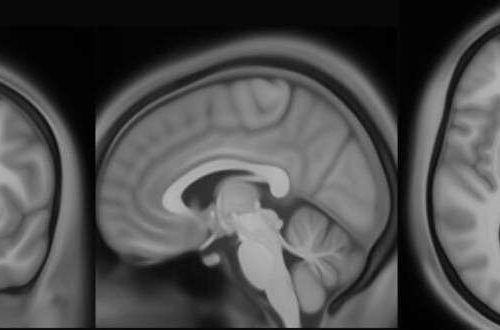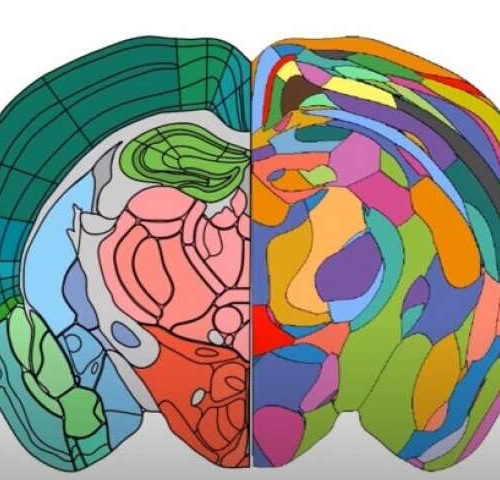INDIANA UNIVERSITY IMAGE: RICHARD BETZEL A team of Indiana University neuroscientists has built a new model of human brain networks that sheds light on how the brain functions. The model offers a new tool for exploring individual differences in brain networks, which is critical to classifications of brain disorders and disease, as well as for...
Category: <span>Brain Training</span>
Mapping the subcortex, the most ancient part of the brain
by Ye Tian, Andrew Zalesky, University of Melbourne Brain scans acquired from 1000 people were used to map an atlas for one of the most evolutionarily ancient parts of the human brain. The most evolutionarily ancient part of our brain is the part that we know the least about. The human subcortex is located deep in...
New method developed for mapping brain areas according to molecular profile
by Felicia Lindberg, Karolinska Institutet Researchers have mapped the mouse brain into areas according to their molecular profile. In a new study researchers at Karolinska Institutet and KTH Royal Institute of Technology have developed a new kind of brain atlas based on an innovative method of mapping brain tissue into areas according to their molecular...
Mindfulness training shows promise for people with MS
COLUMBUS, Ohio – New research suggests mindfulness training may help multiple sclerosis patients in two very different ways: regulating negative emotions and improving processing speed. People with MS who underwent the four-week mindfulness training not only improved more compared to those who did nothing – they also improved compared to those who tried another treatment,...
Found: Brain structure that controls our behavior
For our social life and our profession we must be able to deal with our environment and other people. Executive functions, meaning the basic intellectual abilities that control human thought and action, help us to do this. These include selective attention, otherwise known as the ability to concentrate on one stimulus and suppress others, or...
Scientists explore how the brain trains muscles to move
But research into the neurological process of learning how to move suggests that it might be more accurate to say “mindful practice makes perfect.” This may not sound revolutionary to anyone who’s ever shot a free throw like LeBron or knocked a golf ball like Nicklaus. Star athletes understand that visualizing the shot is critical...
A molecular map of the brain’s decision-making area
KAROLINSKA INSTITUTET Researchers at Karolinska Institutet have come one step closer toward understanding how the part of our brain that is central for decision-making and the development of addiction is organized on a molecular level. In mouse models and with methods used for mapping cell types and brain tissue, the researchers were able to visualize...
Imagined movements can alter our brains
Brain-computer interfaces (BCI) work on the principle that measurable changes in electrical brain activity occur just by thinking about performing a task. Signals can be read, evaluated, and then converted into control signals via a machine learning system, which can then be used to operate a computer or a prosthesis. In a recently published studyresearchers...
Can our thoughts alter our brains?
Brain-computer interfaces have a structural impact on brain substance after one hour of training MAX PLANCK INSTITUTE FOR HUMAN COGNITIVE AND BRAIN SCIENCES The interdisciplinary study examined the influence of two different types of BCI on the brains of test subjects with no prior experience of this technology. The first subgroup was given the task...
Wiggling it beats a path for a better performance at school
Marching, wiggling and tapping a beat aids young children to develop their self-regulation skills and improve school readiness, as shown in newly-published QUT early childhood research. Associate Professor Kate Williams designed a low-cost preschool program focussing exclusively on rhythm and movement activities linked to pathways in the brain to support attentional and emotional development. “Think...




